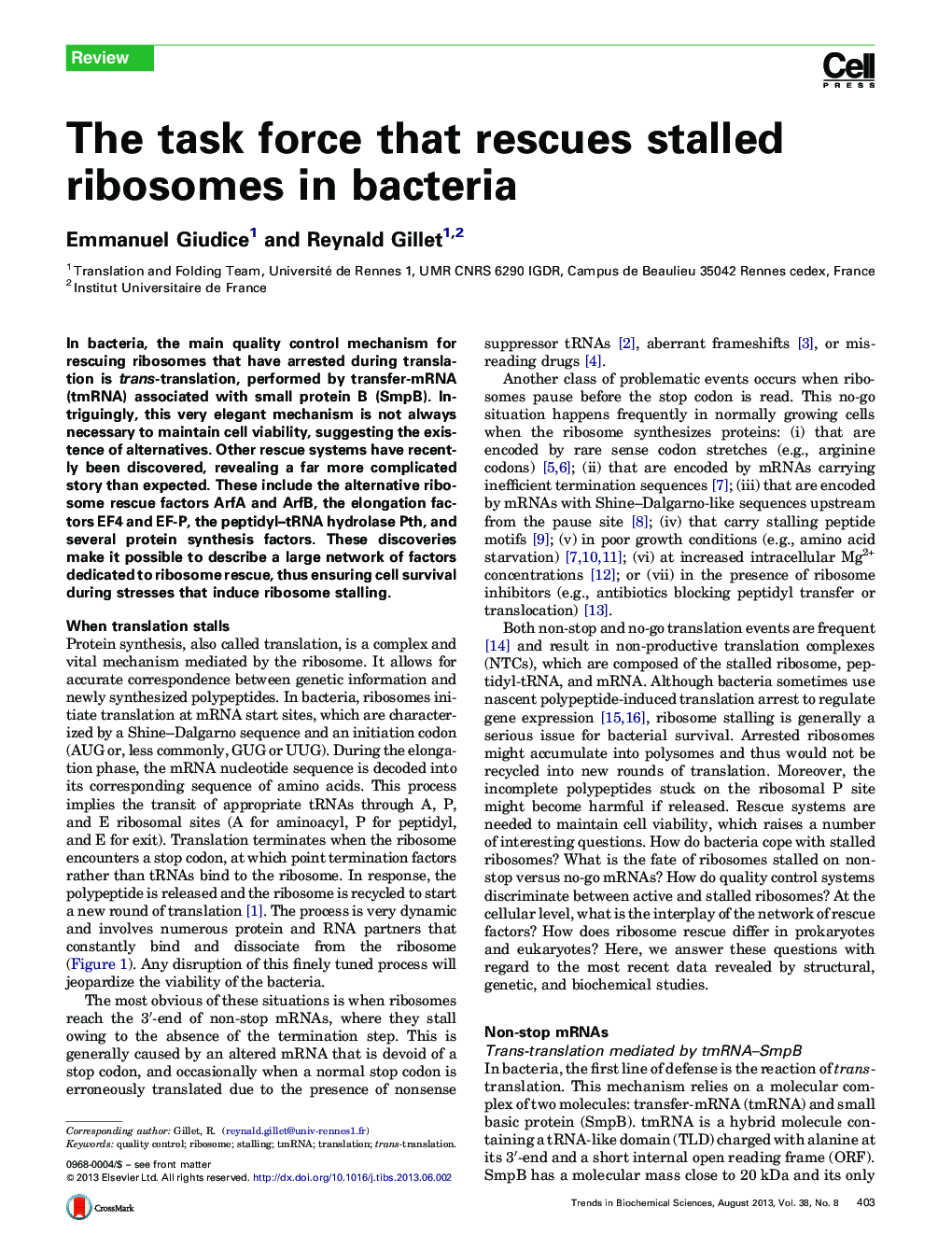| Article ID | Journal | Published Year | Pages | File Type |
|---|---|---|---|---|
| 2031640 | Trends in Biochemical Sciences | 2013 | 9 Pages |
•Protein synthesis, also called translation, is a complex and vital mechanism mediated by the ribosome.•Quality control mechanisms are necessary for rescuing ribosomes that have arrested during translation.•In bacteria, trans-translation is the principal rescue system that helps cells to fight ribosome stalling.•Many other rescue systems have been discovered recently, revealing a far more complicated task force than expected.
In bacteria, the main quality control mechanism for rescuing ribosomes that have arrested during translation is trans-translation, performed by transfer-mRNA (tmRNA) associated with small protein B (SmpB). Intriguingly, this very elegant mechanism is not always necessary to maintain cell viability, suggesting the existence of alternatives. Other rescue systems have recently been discovered, revealing a far more complicated story than expected. These include the alternative ribosome rescue factors ArfA and ArfB, the elongation factors EF4 and EF-P, the peptidyl–tRNA hydrolase Pth, and several protein synthesis factors. These discoveries make it possible to describe a large network of factors dedicated to ribosome rescue, thus ensuring cell survival during stresses that induce ribosome stalling.
